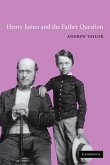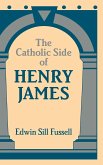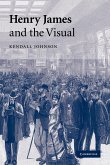Henry James (1843-1916) has been championed as an historian of social conscience and attacked as a spokesman for social privilege. His Americanness has been questioned by nativists and defended by Brahmins. Critics took issue with his lucidly complex style. "It's not that he bites off more than he can chew, but that he chews more than he bites off," a contemporary complained. Although he was an acknowledged master in his final years, James' narrow readership has dwindled in the century since his death. This book examines allusions, sources and affinities in James' vast body of work to interpret his literary intentions. Chapters provide close analysis of Daisy Miller, The American, The Beast in the Jungle and The Wings of the Dove. His fascination with poet Robert Browning is discussed, along with his complicated relationship with Marian "Clover" Adams and her husband, Henry, who was the author of The Education of Henry Adams. Instructors considering this book for use in a course may request an examination copy here.
Hinweis: Dieser Artikel kann nur an eine deutsche Lieferadresse ausgeliefert werden.
Hinweis: Dieser Artikel kann nur an eine deutsche Lieferadresse ausgeliefert werden.








